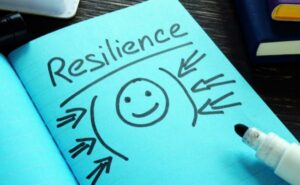Life is full of ups and downs, and it’s important for children to develop resilience to navigate the challenges they may encounter. Resilience is the ability to bounce back from adversity, adapt to change, and thrive in the face of difficulties.
As parents and educators, we play a vital role in helping children build resilience and develop the skills they need to overcome obstacles. In this article, we will explore effective strategies for building resilience in children, equipping them with the tools to face challenges with confidence and strength.
Understanding Resilience in Children
What is Resilience?
Resilience is not an innate trait; it can be cultivated and nurtured over time. It involves a combination of emotional, cognitive, and social skills that enable children to navigate setbacks and stressors effectively. Resilient children possess a positive mindset, problem-solving skills for children, emotional regulation, and a strong support system.
The Benefits of Building Resilience
Building resilience in children has numerous benefits. Resilient children are better equipped to handle stress, adapt to change, and maintain positive mental health. They develop a sense of self-efficacy, optimism, and perseverance, which contributes to their overall well-being and success in various areas of life.
Strategies for Building Resilience in Children
-
Foster a Secure and Supportive Environment
A secure and supportive environment is the foundation for building resilience in children. Provide a loving and nurturing home or nursery environment where children feel safe to explore, express themselves, and make mistakes. Encourage open communication, active listening, and emotional support to help them develop trust and a strong sense of belonging.
-
Teach Problem-Solving Skills
Teaching children problem-solving skills empowers them to tackle challenges with confidence. Encourage them to identify problems, brainstorm solutions, and evaluate the potential outcomes. Guide them through the process and provide opportunities for them to practice problem-solving in various situations.
-
Promote Positive Mindset and Self-Belief
Instill a positive mindset in children by fostering a growth mindset. Teach them that setbacks and failures are learning opportunities and encourage them to embrace challenges as chances for growth. Help them recognize their strengths and abilities, and remind them that they have the power to overcome obstacles.
-
Encourage Emotional Expression and Regulation
Help children understand and express their emotions in healthy ways. Teach them coping strategies such as deep breathing, journaling, or engaging in creative activities for children. Encourage them to talk about their feelings and provide guidance on managing stress and difficult emotions.
-
Nurture Healthy Relationships
Positive relationships play a significant role in building resilience. Foster connections with family, friends, and positive role models. Encourage empathy, kindness, and effective communication skills. These relationships provide support, guidance, and a sense of belonging that can increase a child’s resilience.
-
Set Realistic Goals and Celebrate Progress
Teach children to set realistic goals and break them down into manageable steps. Celebrate their achievements and progress along the way. Recognize their efforts, no matter how small, and help them build a sense of accomplishment and self-confidence.
Encourage children to step out of their comfort zones and take healthy risks. Provide opportunities for them to try new activities, face challenges, and learn from their experiences. Emphasize that failure is a natural part of the learning process and that setbacks should not discourage them from trying again.
-
Foster a Sense of Purpose and Empowerment
Help children discover their passions and interests. Encourage them to engage in activities that align with their values and strengths. Foster a sense of purpose by involving them in community service or activities that contribute to the well-being of others. When children feel a sense of purpose, they are more likely to persevere in the face of adversity.
-
Model Resilient Behavior
Children learn by example, so be a positive role model of resilience. Demonstrate healthy coping strategies, problem-solving skills, and a positive attitude towards challenges. Show them that setbacks can be overcome and that mistakes are opportunities for growth. Your resilience will inspire and motivate them to develop their own resilience.
Remember that building resilience is a collective effort. If you notice signs of prolonged distress or difficulty in your child, seek professional support from counselors, therapists, or educators. They can provide additional strategies and interventions to support your child’s resilience journey.
Conclusion
Building resilience in children is an ongoing process that requires time, patience, and consistent effort. By fostering a secure and supportive environment, teaching problem-solving skills, promoting a positive mindset, and nurturing healthy relationships, we can equip children with the resilience they need to overcome challenges and thrive.
At The Little Dreamers Nursery, we prioritize the holistic development of your child. As a nursery in Jumeirah, Dubai, we provide a nurturing and stimulating environment where children can learn and grow, building resilience along the way. Our highly qualified staff is committed to supporting your child’s emotional well-being and helping them develop essential life skills.
Together, let’s empower our children, teach them to embrace challenges, and foster their resilience. Contact The Little Dreamers Nursery today to learn more about our programs and how we can support your child’s resilience-building journey.













